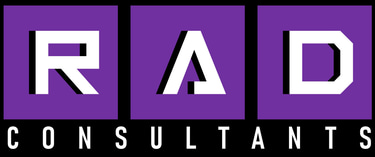Redefining Individual Value
Where Passion Meets Profit in the New Economy


Introduction
Right now, we are in the thick of it. AI is making its way into every industry, and the way we think about productivity on a global scale is undergoing a massive shift as I write this. This article will look at how AI, layoffs, money, individual value, and shifts in the global supply and demand for productivity are all connected. We'll also share some advice for employees and entrepreneurs on how to stay relevant by aligning their passions with what consumers need and what makes the most economic sense as we move forward.
AI is Shaking Up the Job Market...Starting Last Year
AI isn't just a tool for efficiency anymore – it's redefining roles, creating new sectors, and in some cases, making traditional jobs obsolete. AI is a pro at brainstorming, calculating, and automating and becomes stronger everyday at natural language interaction and creativity (here too). These capabilities have streamlined operations in finance, manufacturing, customer service, and more which has led to a major reevaluation of human labor in these sectors.
But this doesn't mean we're headed for a jobless future. It just means the skills in demand are changing. Creativity, emotional intelligence, and complex problem-solving are becoming uniquely valuable in the AI era. Individuals need to focus on developing these skills to stay relevant and valuable in the evolving job market.
The Economy is Shifting, and Work is Changing
The global economy is going through a major paradigm shift in the supply and demand for productivity – not labor. The old economic models based on predictable patterns of supply, demand, and labor are being turned upside down. In this new landscape, agility and innovation are key. For employees, this means moving away from routine, repetitive tasks to roles that require adaptability and continuous learning.
Layoffs, which often happen as a result of these economic shifts, shouldn't be seen as solely a negative. They're an opportunity for reevaluation and growth (speaking from experience here). It's a time for workers to take a hard look at their skills and make sure they align with emerging trends and needs.
Money's Role in the Shifting Economic Landscape
Money itself is going through a major transformation driven by the increasing integration of AI and automation into the workforce. Bitcoin’s recent rise during this time of innovation and revolution is suddenly not so surprising. This technological shift is reshaping the traditional flow of money, leading to a concentration of wealth at the top of corporations as profits soar due to reduced labor costs and increased efficiency. As a result, the need for human labor in certain sectors is diminishing, making traditional employment less secure and lucrative for many, particularly the middle class. One might hope that this inflow of profits led by AI initiatives will spur higher-level reinvestment and better quality jobs – but the ball is in the court of company ownership for that one. (Company ownership huh? Sounds like a good idea, doesn’t it?)
Compensation is moving away from being primarily tied to time and output. Instead, value will increasingly be linked to the impact and uniqueness of one's contribution. This transition underscores the importance of identifying and nurturing skills or talents that can't be easily replicated by AI or automation. For the average employee, this means taking a deep look at what they truly love to do and what the market values – finding the intersection where passion meets utility. This intersection is where individual value will be maximized in the future economy. Some might call it a move towards “ikigai”.
The middle class, finding themselves outside the protective umbrella of corporate employment, are uniquely positioned to drive value and innovation as entrepreneurs. The key to success lies in creatively leveraging their skills and knowledge in niches where AI and automation haven't made significant inroads yet. This can range from personalized services requiring a human touch to hyperspecialization and niche product development catering to specific consumer needs.
AI is making abundant what was once scarce. Value comes from scarcity, from something that's difficult to replicate. That difficulty is lower now than it has ever been. As the economic dynamics continue to shift, the pursuit of individual value will be paramount. Those who can identify and nurture their unique talents, and creatively apply them in areas where human ingenuity remains essential, will be well-positioned to thrive in the evolving economic landscape.
Advice for Employees
1. Embrace Continuous Learning: The future belongs to those willing to continuously learn and adapt. Stay on top of industry trends and upskill accordingly.
2. Cultivate Unique Skills: In an AI-dominated world, uniquely human skills will be in high demand. Focus on developing creativity, emotional intelligence, and critical thinking.
3. Align Passion with Market Needs: Identify what you love to do and find ways to align it with market demands. This alignment is key to both personal satisfaction and economic relevance.
4. Build a Personal Brand: In a competitive job market, a strong personal brand can set you apart. Showcase your unique skills and experiences through various platforms.
Advice for Aspiring Business Owners
1. Identify Market Gaps: Look for areas where AI and automation are less effective. This might include industries that require a high degree of personalization or human interaction.
2. Leverage Unique Skills: Utilize your individual talents and experiences to create a business that offers something distinctive and valuable.
3. Focus on Adaptability: In a rapidly changing economy, the ability to adapt is crucial. Stay attuned to market trends and be ready to pivot your business model as needed.
4. Build Networks: Strong business networks can provide support, advice, and opportunities for collaboration. Networking is essential for any entrepreneur looking to thrive in today's economy.
Conclusion
The future of work is tied to advancements in AI and automation, driving economic shifts that redefine individual value. While challenging, these changes offer unprecedented opportunities for growth by embracing entrepreneurship and focusing on areas to add unique human value. This transition is moving towards many more small companies driving a hyperspecialized value. To thrive, individuals must commit to continuous learning, honing unique skills aligned with market needs, and building a robust personal brand. The future is about creating value through distinct abilities, not just adapting to technological disruptions. Those who innovate and harness their uniqueness will shape a future where human ingenuity propels economic progress and personal fulfillment.


